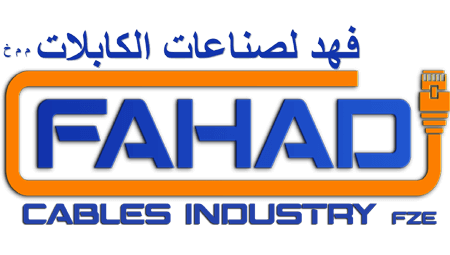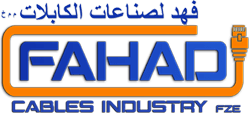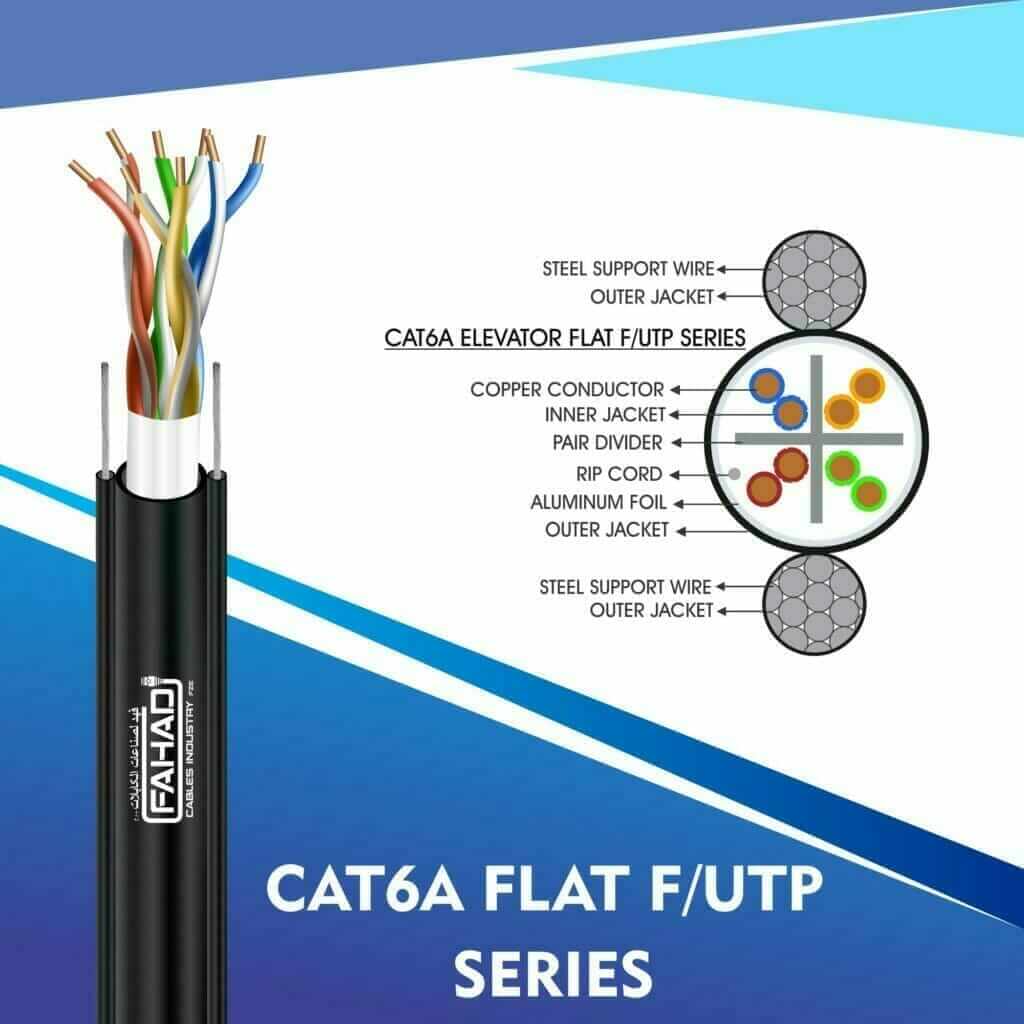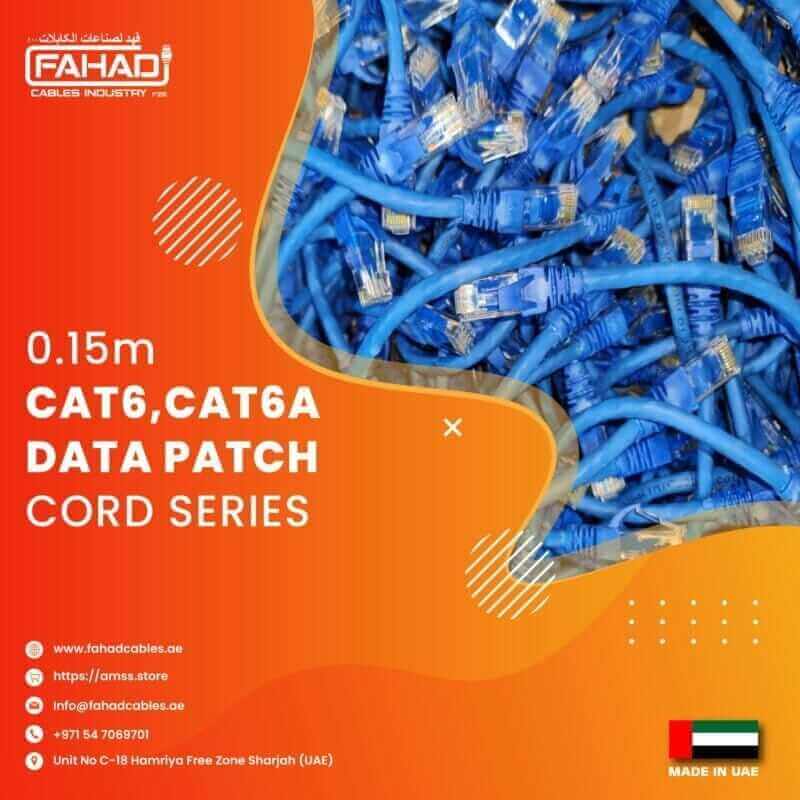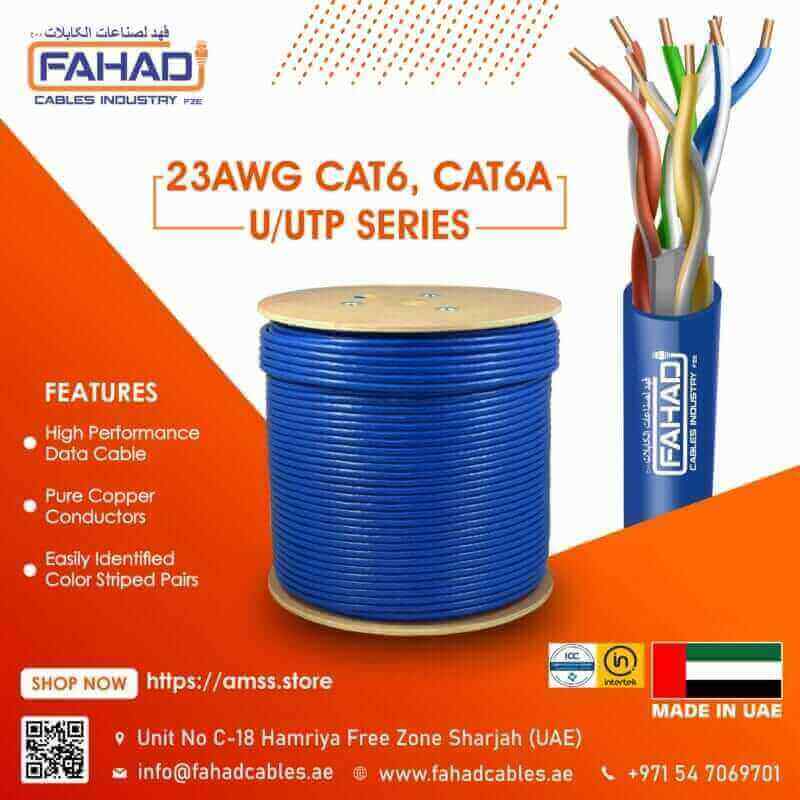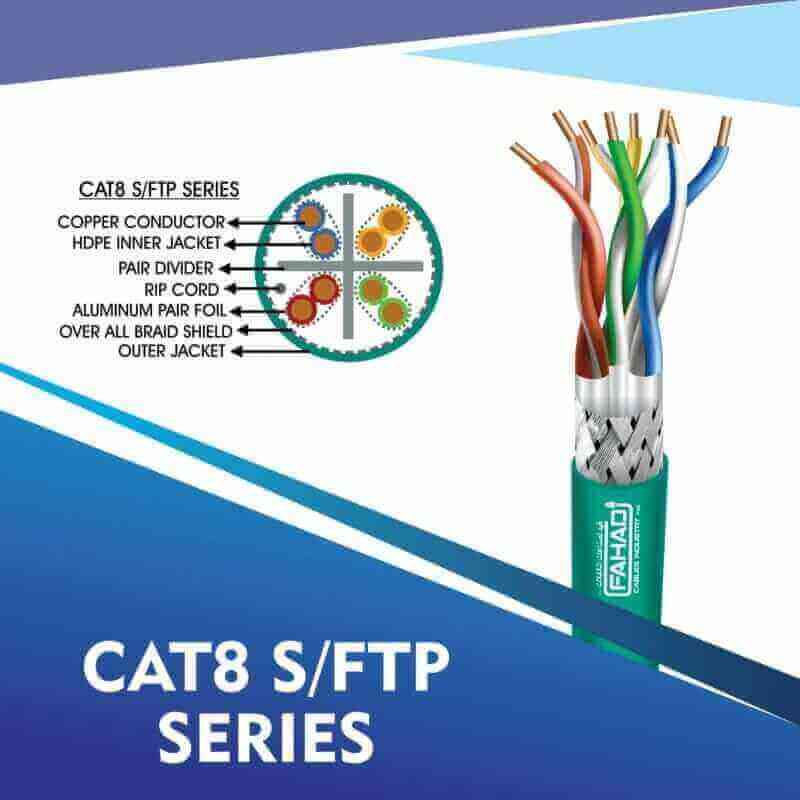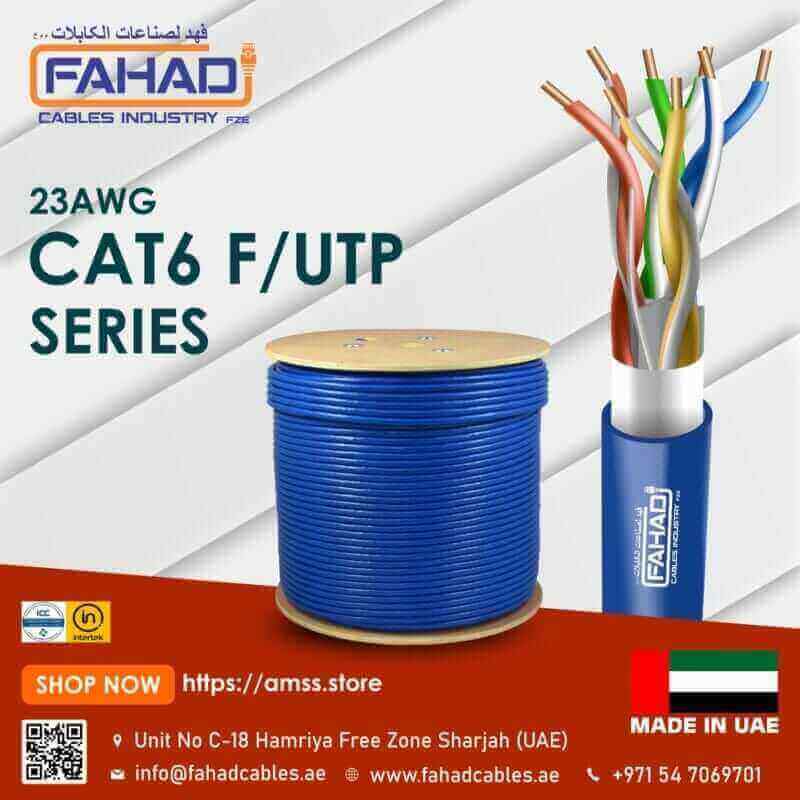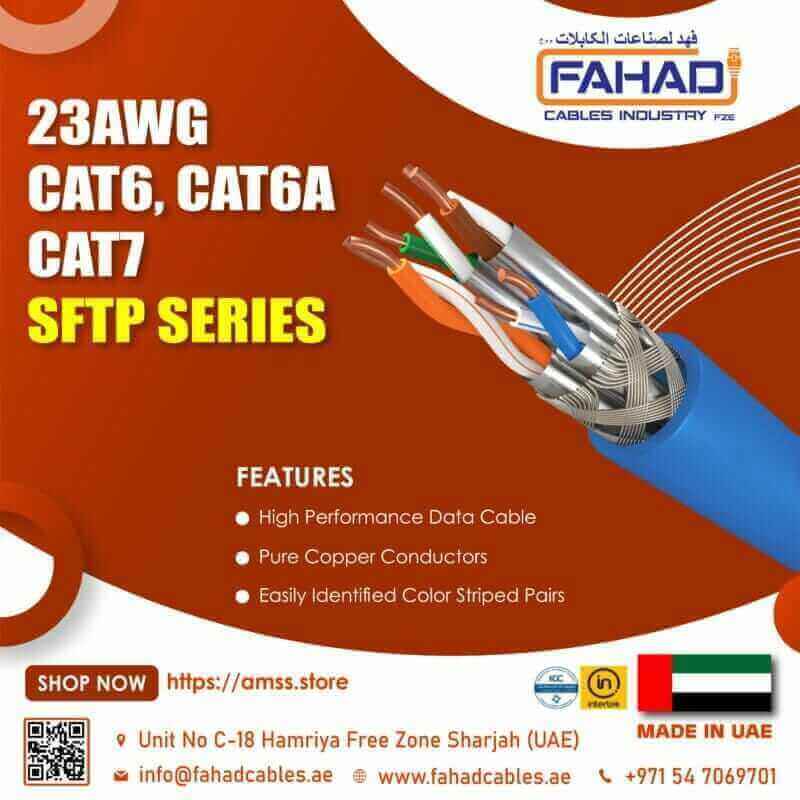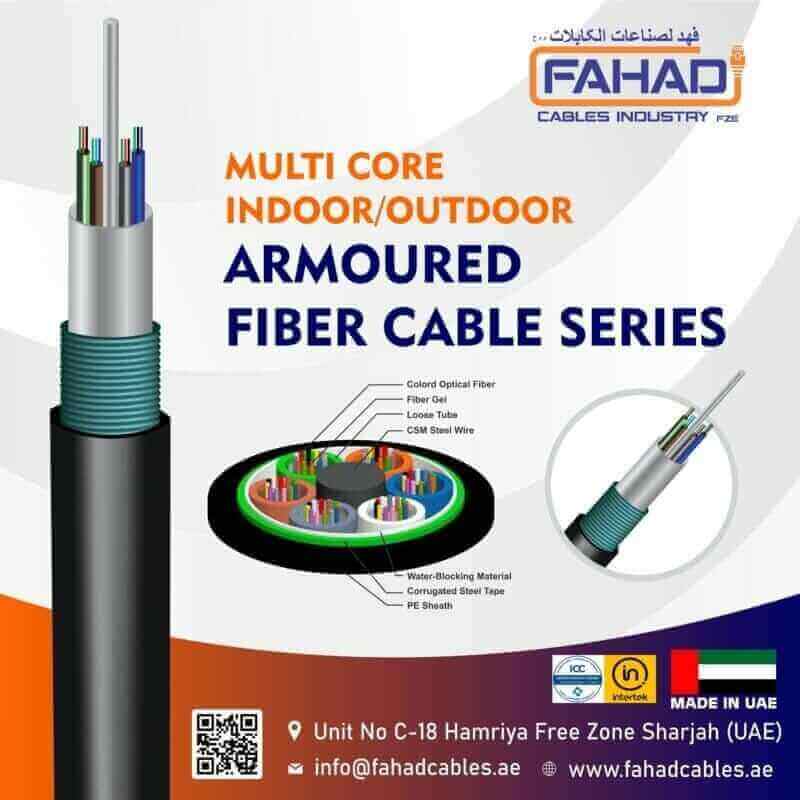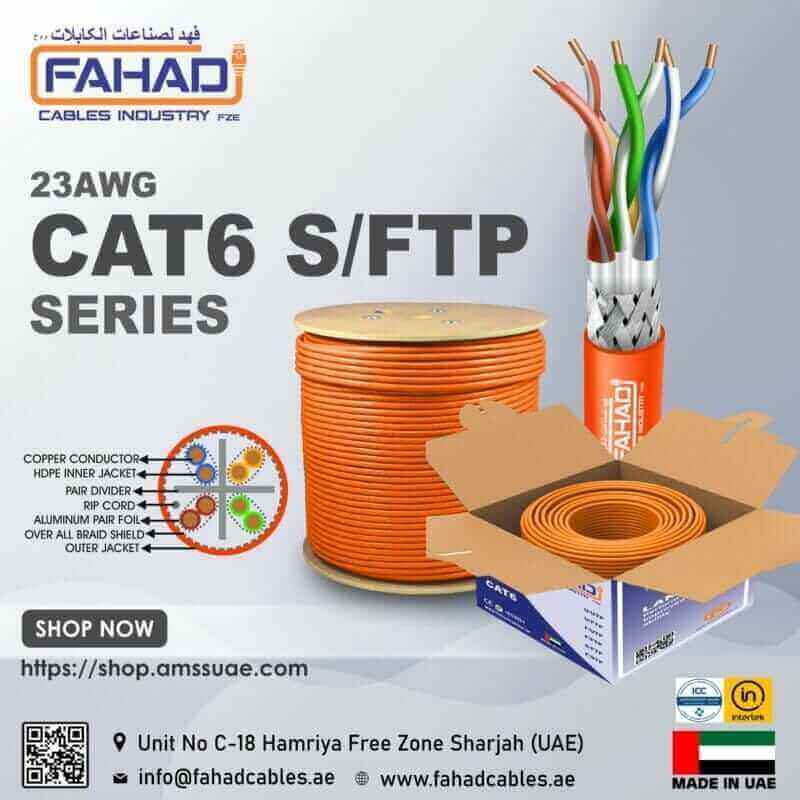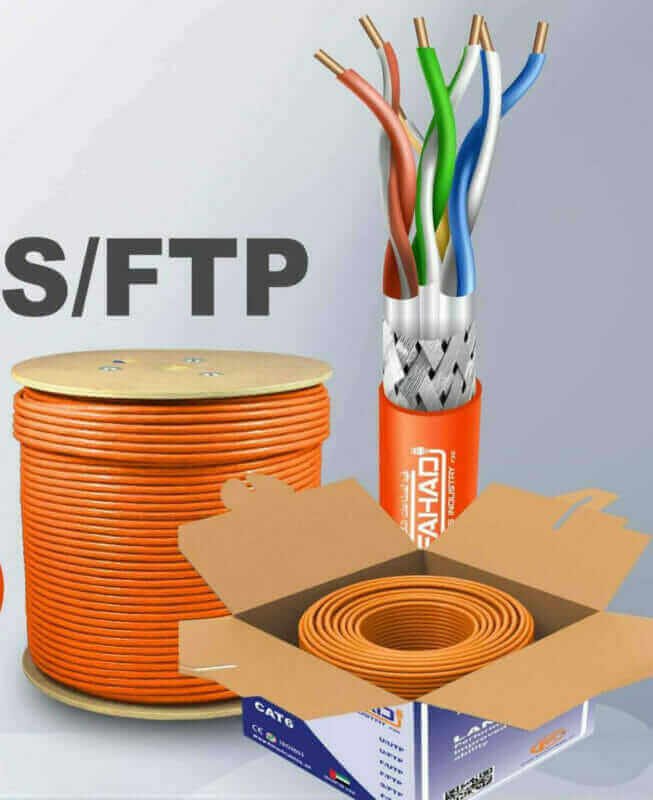- Network Cables
- Control automation Cables
- Data Patch Cord
- fiber optic cable
- Fiber Patch cord Multimode
- Fiber Patch cord Single Mode
- Fiber Pigtails Series
- Coaxial Cables
- security cable wire
- alarm cable
- speaker cables
Exploring Cat6 Network Cables Produced by Fahad Cables Industry FZE in Sharjah, UAE
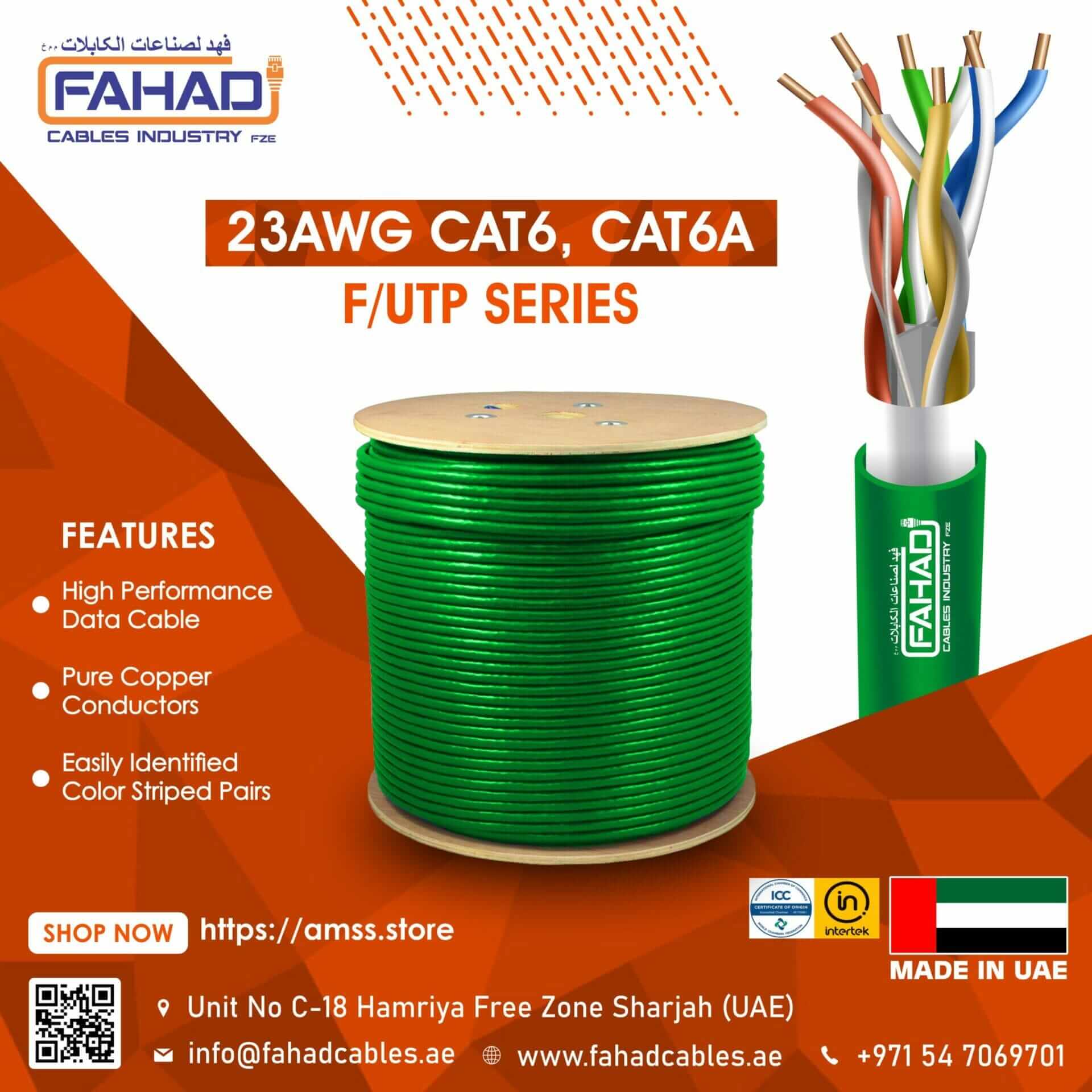
Introduction to Network Cables
In today’s digital age, the importance of network cables cannot be overstated. They serve as the backbone of our interconnected world, enabling communication and data transmission among various devices. Network cables are essential components in both residential and commercial sectors, as they foster the seamless connectivity that underpins modern telecommunications. Among the various types of network cables, Cat6 cables have gained significant recognition for their superior performance and reliability.Cat6 Network Cables
Cat6, or Category 6 cable, is an advanced type of Ethernet cable designed to support high-speed data transmission. This category of cable is capable of handling frequencies of up to 250 MHz and can transmit data at speeds of up to 10 Gbps for distances of up to 55 meters. One of the primary advantages of Cat6 cables is their ability to reduce crosstalk, a phenomenon where signals from one cable interfere with another, leading to data loss and reduced network performance. By employing improved insulation and a more stringent construction process, Cat6 cables ensure a higher quality of signal transmission.
Fahad Cables Industry FZE, based in Sharjah, UAE, specializes in the production of high-quality Cat6 cables. Their commitment to excellence aligns with the growing demand for faster and more reliable networking solutions in various industries. The increasing reliance on digital communication has necessitated the use of advanced cabling systems capable of coping with bandwidth-intensive applications such as video conferencing, online gaming, and cloud computing. By understanding the fundamentals of network cables and the specific advantages offered by Cat6 technology, individuals and organizations can make informed decisions regarding their networking needs and optimize their overall network performance.
Overview of Fahad Cables Industry FZE
Established as a key player in the cable manufacturing sector, Fahad Cables Industry FZE is located in Sharjah, United Arab Emirates. The company has built a robust reputation over the years by focusing on delivering high-quality products, particularly network cables, which include the widely recognized Cat6 series. The inception of Fahad Cables dates back to its founding in the early 2000s, aiming to cater to the growing demand for reliable cabling solutions within the UAE and beyond.
The vision of Fahad Cables Industry FZE is to become a leader in the cable manufacturing industry by embracing advanced technologies and innovative practices. The company’s mission reflects its commitment to quality, customer satisfaction, and sustainability. Adhering to international standards, Fahad Cables ensures that all products are tested rigorously, ensuring their dependability in various applications, including telecommunications and data transmission.
In terms of manufacturing capabilities, Fahad Cables Industry FZE is equipped with state-of-the-art machinery that enables the production of a diverse range of cables designed to meet various industrial needs. Their facilities are manned by skilled technicians and engineers who prioritize precision and excellence in every product. The company takes pride in its ability to integrate innovation into its processes, thus enhancing the performance of its network cables. The Cat6 network cables produced by Fahad Cables are designed to support high data rates and offer superior performance for modern networking requirements.
Fahad Cables also places a strong emphasis on meeting customer expectations and adapting to evolving market demands. By continually investing in research and development, the company is able to refine its product offerings while maintaining competitive pricing. This dedication to quality combined with a forward-thinking approach positions Fahad Cables Industry FZE as a significant contributor to the cable manufacturing landscape in the region.
Types of Cat6 Cables Manufactured
Fahad Cables Industry FZE in Sharjah, UAE, specializes in the production of various types of Cat6 cables, which are essential for ensuring efficient data transmission in modern networks. The most common type manufactured is the standard Cat6 cable. These cables are designed to support data rates of up to 1 Gbps over a distance of 100 meters and can handle frequencies of up to 250 MHz, making them suitable for most everyday networking needs, including home and office setups.
In addition to standard Cat6 cables, Fahad Cables also produces Cat6a cables. These are an enhanced version that can achieve data rates of up to 10 Gbps for distances up to 100 meters, encompassing a frequency range of up to 500 MHz. Cat6a cables are particularly beneficial in environments where higher bandwidth and reduced crosstalk are necessary, such as data centers and enterprise networks, making them a preferred choice for organizations looking to future-proof their infrastructure.
Moreover, variations such as unshielded twisted pair (UTP) and shielded twisted pair (STP) cables are also manufactured. UTP cables are commonly used in residential and commercial environments due to their cost-effectiveness and ease of installation. However, they are more susceptible to electromagnetic interference (EMI). Conversely, STP cables are equipped with shielding that provides additional protection against external interference, making them suitable for environments with high levels of electrical noise, such as factories or areas with numerous electronic devices. Understanding these different types of Cat6 cables and their specific applications can help businesses and individuals make informed decisions suited to their networking needs.
Key Features and Specifications of Cat6 Cables
Cat6 cables, designed for high-speed networking, are a significant upgrade from their predecessors, offering enhanced performance attributes that cater to modern digital demands. One of the most notable specifications is their maximum data transmission speed, which can reach up to 10 Gbps over short distances, making them suitable for demanding applications such as video streaming and online gaming. This impressive speed is crucial for environments where data-heavy tasks are performed, ensuring minimal latency and efficient connectivity.
Another critical aspect of Cat6 cables is their bandwidth capacity. With a bandwidth of up to 250 MHz, these cables can handle more data simultaneously compared to earlier versions, such as Cat5e. This increase in bandwidth allows for improved performance, particularly in comprehensive networking setups where multiple devices might be in use at the same time. By leveraging this expanded capacity, businesses and individuals can effectively manage their networking needs without experiencing bottlenecks.
However, it’s important to consider the length limitations associated with Cat6 cables. They can support data transmission over distances of up to 100 meters. Beyond this range, performance may degrade, leading to reduced speeds and potential data loss. Therefore, careful planning of cable layout and design is necessary to ensure optimal performance within these parameters. Additionally, to achieve the best results, adherence to relevant performance standards, such as ANSI/TIA-568-C.2, is essential. Compliance with these specifications guarantees reliable functionality, reduced crosstalk, and increased signal integrity.
Fahad Cables Industry FZE in Sharjah, UAE, delivers Cat6 cables that meet these rigorous requirements, facilitating advanced and reliable networking solutions. With the combination of high-speed transmission, substantial bandwidth, manageable length limitations, and adherence to performance standards, users can expect exceptional results from Cat6 cables in their networking applications.
Quality Assurance and Certifications
Fahad Cables Industry FZE places significant emphasis on quality assurance to ensure that all products, particularly Cat6 network cables, meet the highest standards of performance and reliability. The company adheres to stringent quality control measures throughout the manufacturing process, beginning from raw material selection to the final product assessment. This comprehensive approach enables the production of cables that not only meet but often exceed industry expectations.
One of the key elements of Fahad Cables’ quality assurance process is its commitment to obtaining internationally recognized certifications, notably ISO and UL certifications. ISO (International Organization for Standardization) certifications denote that the company’s operations comply with global standards of quality management. These standards are crucial in maintaining consistency in their production processes and ensuring continuous improvement in product quality. The adherence to ISO standards also reinforces customer confidence in the reliability of their Cat6 cables, which are essential for efficient networking infrastructure.
In addition to ISO certifications, Fahad Cables Industry FZE has secured UL (Underwriters Laboratories) certification, which is pivotal in the cable industry. UL certification signifies that the Cat6 cables have undergone rigorous testing to verify their safety and performance metrics, such as fire resistance, electrical performance, and overall durability. This certification is essential for customers looking for reliable products that meet various regulatory requirements. By achieving these certifications, Fahad Cables demonstrates its dedication to manufacturing high-quality cables that are safe and compliant with international standards.
Moreover, the proactive implementation of quality control measures and adherence to recognized certifications not only enhances the trust of clients but also positions Fahad Cables Industry FZE as a leader in the competitive cable manufacturing market. The focus on maintaining these high standards reflects the company’s unwavering commitment to delivering exceptional Cat6 network cables that contribute to superior network performance.
Applications of Cat6 Network Cables
Cat6 network cables, produced by Fahad Cables Industry FZE in Sharjah, UAE, are a popular choice across various sectors due to their ability to support high-speed data transmission. In residential settings, these cables are commonly used to enable reliable internet connections for streaming services, online gaming, and smart home devices. With the increasing demand for bandwidth in households, the Cat6 cable offers the necessary infrastructure to connect multiple devices without compromising speed or performance.
In commercial environments, Cat6 network cables are crucial for supporting enterprise-level networks. Businesses utilize these cables for efficient communication between computers, servers, and other networking devices. The enhanced performance of Cat6 cables allows for faster data transfer rates, which is essential for applications such as video conferencing, cloud-based services, and large file downloads. Furthermore, the structured cabling system that utilizes Cat6 cables provides flexibility and scalability, accommodating the evolving needs of businesses as they grow.
Transitioning to industrial applications, Cat6 cables play a vital role in various sectors, including manufacturing, healthcare, and logistics. In factories, for instance, these cables are used to connect automated machinery and systems, enabling real-time data monitoring and analysis. In healthcare, the need for robust network infrastructure is paramount, as medical devices increasingly rely on stable connections for patient monitoring and data management. Cat6 cables address this need by offering consistent performance and minimal interference, ensuring that critical operations are maintained without disruption.
The adaptability of Cat6 network cables across these diverse applications underlines their significance in today’s connected world. As technology advances and connectivity becomes increasingly vital, the role of Cat6 cables continues to expand, making them a valuable asset in any environment that demands reliable and high-speed networking solutions.
Comparing Cat6 with Other Cable Categories
Cat6 network cables are gaining popularity in both residential and commercial setups due to their impressive performance characteristics. To fully appreciate the advantages of Cat6 cables, it is essential to compare them with their predecessors and successors, specifically Cat5e and Cat7 cables. Each category possesses distinct features that cater to various networking needs.
Firstly, Cat5e (Category 5 enhanced) cables are often considered the baseline for Ethernet networks. They support speeds up to 1 Gbps and bandwidths reaching 100 MHz. While Cat5e can sufficiently handle many home networking tasks, its limitations emerge in high-demand environments. Cat6 cables significantly enhance these specifications, accommodating speeds up to 10 Gbps over distances of up to 55 meters and providing a bandwidth of 250 MHz. This elevated performance makes Cat6 an ideal choice for environments requiring high-speed data transmission, such as video conferencing or online gaming.
On the other hand, Cat7 cables provide even higher performance capabilities compared to Cat6. With a maximum speed of 10 Gbps and extending to 100 Gbps for short distances, Cat7 cables possess a bandwidth capacity of 600 MHz. While these features make Cat7 suitable for data centers and enterprise networks, the additional shielding and construction complexity lead to higher costs and installation challenges. In comparison, Cat6 strikes a balance between performance and affordability, making it the preferred option for most users.
Ultimately, the choice between Cat6, Cat5e, and Cat7 will depend on specific application requirements, budget constraints, and future scalability needs. Understanding these differences empowers consumers and businesses to select the most appropriate solution to meet their networking needs effectively.
Customer Testimonials and Success Stories
The reliability and performance of Cat6 network cables produced by Fahad Cables Industry FZE in Sharjah, UAE, have garnered praise from a diverse range of customers. Numerous businesses and individuals have shared their positive experiences, highlighting how these cables have significantly improved their networking capabilities.
One notable testimonial comes from a mid-sized tech firm that was experiencing connectivity issues due to outdated cabling. After switching to Fahad’s Cat6 cables, the company’s network speed increased dramatically, allowing for seamless file sharing and faster internet access. The IT manager noted, “Since we upgraded to the Cat6 cables from Fahad Cables, our productivity has soared. We no longer face slowdowns, and our employees can work efficiently without interruptions.”
Another success story involves a local educational institution that recently renovated its infrastructure. The school’s IT administrator reported that implementing Fahad’s Cat6 network cables has transformed their entire network system. With the new cabling, classrooms are now equipped with reliable internet access, enhancing the learning experience for students. “The difference is night and day. Our students can now engage in online lessons without buffering issues or dropped connections,” they stated.
Furthermore, a residential customer shared how upgrading to Cat6 cables enhanced their home network performance. With the growing number of smart devices in households, the need for greater bandwidth became apparent. After installing Fahad’s Cat6 cables, they remarked, “Streaming, gaming, and smart home operations are now smooth. I highly recommend these cables to anyone needing a robust internet solution.”
These testimonials reflect a recurring theme: the exceptional quality and performance of Cat6 network cables from Fahad Cables. The positive feedback from various sectors emphasizes that investing in reliable cabling solutions leads to significant enhancements in connectivity and productivity.
Conclusion and Future of Cat6 Cables
In summary, the advancements in Cat6 network cables produced by Fahad Cables Industry FZE highlight the importance of quality and innovation within the telecommunications sector in Sharjah, UAE. Over the course of this discussion, we have explored the superior performance characteristics of Cat6 cables, such as their capability to support gigabit speeds and enhanced bandwidth, which are essential for meeting the demands of modern networking environments.
As technology continues to evolve, so does the necessity for faster and more reliable connections. With the explosion of data-driven applications, streaming services, and online gaming, the investment in higher performance cabling solutions, like Cat6, becomes paramount. Looking forward, we can anticipate that the increasing demands for speed and bandwidth will drive further innovations in cable technology, including higher-category cabling options such as Cat6a and beyond.
Moreover, the growing reliance on cloud computing and IoT (Internet of Things) devices signifies a transition to more interconnected environments. This shift presents opportunities for enhanced interoperability and efficiency in network infrastructures. Consequently, manufacturers like Fahad Cables Industry FZE must stay at the forefront of such trends to ensure their products remain competitive and aligned with future networking requirements.
In conclusion, while Cat6 cables have proven to be highly effective tools for addressing current networking challenges, the future landscape will likely merit even more advanced cabling systems. The continuous evolution of technology necessitates that industry leaders remain responsive to these changes, ensuring that connectivity solutions can effectively cater to the next generation of digital demands.
